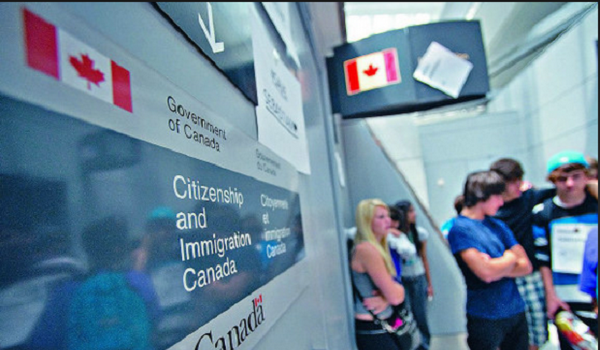Experts urge government to change immigration rules to stop jobs-for-sale scam
Immigration experts are calling for urgent action to curtail an exploitative jobs-for-sale scam in which international students and foreign workers are charged thousands of dollars by employers and consultants to get a job in Canada.
Some fear the scam risks escalating further as international students, squeezed by recent changes to the post-graduate work-permit program, will search for ways to stay and work in Canada to rack up points to qualify for permanent residence.
Stephen Green, managing partner of Green and Spiegel, a long-established immigration law firm, said job selling to foreign workers is “brazen” and international students wanting to work in Canada are among those being “duped” by unscrupulous people charging them to get jobs.
The scam involves exploiting a Labour Market Impact Assessment, a legitimate document showing there is a need for a temporary foreign worker to fill a job, as no Canadian can be found to do it.
Once an employer advertises the job and obtains an LMIA from Employment and Social Development Canada, the foreign worker – who could be already in Canada on a visa – can apply for a work permit to take the LMIA job. Employers including Tim Hortons legitimately employ foreign workers using LMIAs.
But The Globe and Mail has found advertisements online asking for payment including for a “pre-approved” food service supervisor job for an applicant on a “visitor visa” for the “market price,” and at the “going rate” for a job as a cook for an applicant on a visitor visa.
“An LMIA is now worth tens of thousands of dollars,” said Conservative immigration critic Tom Kmiec.
Labour Market Impact Assessment scams are now so widespread, he says, that he plans to present a motion to the Commons immigration committee when Parliament returns from its March break proposing MPs study the problem.
Mr. Kmiec said he has never seen so much open fraud online, which is fuelled in part by the “incredible demand for a very limited supply” of jobs for foreigners, which can help them obtain points toward gaining permanent residency.
He said some Canadians applying for jobs are also losing out under the LMIA scam. Some advertised roles will never be given to Canadians. They are reserved for foreign applicants who will pay thousands of dollars to an employer for a job in Canada.
Immigration Minister Marc Miller tightened the rules earlier this year, limiting the number of post-graduate work permits available to international students at private colleges. From September, international students who begin a study program at a private college operating under a public-private partnership model will not be eligible for a post-graduate work permit.
Mr. Green predicted that many students at private colleges would, following the changes, look for another route to stay and work in Canada.
“There’s a lot of unscrupulous people out there going to take advantage of these kids. Now that door is closed, they are going to be desperate,” he said.
Mr. Green said employers applying to hire a foreigner through an LMIA should have to sign an attestation saying no money has changed hands.
Some immigration consultants have been caught taking a cut as part of the scam.
Last month the College of Immigration and Citizenship Consultants, which regulates the profession and licenses consultants, struck off Manitoba immigration consultant Harar Singh Sohi for job selling and other misconduct.
Several of his former clients complained about paying thousands of dollars to help secure an LMIA or a job. Under Manitoba law, it is illegal to collect a fee for finding a job for a foreign worker.
“Job selling, which is the practice of illegally charging foreign nationals for jobs and associated costs, is one of the most serious issues the college deals with,” said Stefan Lach, spokesman for the College. “Licensees who engage in these activities are not only subject to regulatory penalties by provincial and federal authorities as well as criminal sanctions, but also disciplinary measures from the College up to and including permanent revocation, restitution and fines if the allegations are proven.”
Immigration consultant Earl Blaney said the College the needs to do more to hunt down and discipline its members involved in LMIA fraud.
Mr. Blaney said “the huge volume of international students” wanting to stay and work in Canada was fuelling the sale of LMIA jobs, which could bring with them 50 or more points toward gaining permanent residence.
He suggested, to deter the buying of jobs, international graduates applying for permanent residence should be disqualified for including points accrued from an LMIA job. Mr. Blaney said the scam, which requires employers to advertise jobs and prove that a Canadian is not available to do them, is also robbing Canadians of employment.
“They are not advertising jobs to Canadians in any way,” he said. “Canadians come last for sure.”
Alice Hansen, spokeswoman for Employment Minister Randy Boissonnault, said employers are prohibited from charging recruitment fees to workers.
“Anyone using this system to exploit workers will be found non-compliant, and will face severe consequences,” including fines and potentially a ban from the Temporary Foreign Worker program, she said.
She added that the department was working with the Canada Border Services Agency on a case-by-case basis to investigate accusations and eliminate fraud from the LMIA system.
This article was first reported by The Globe and Mail















